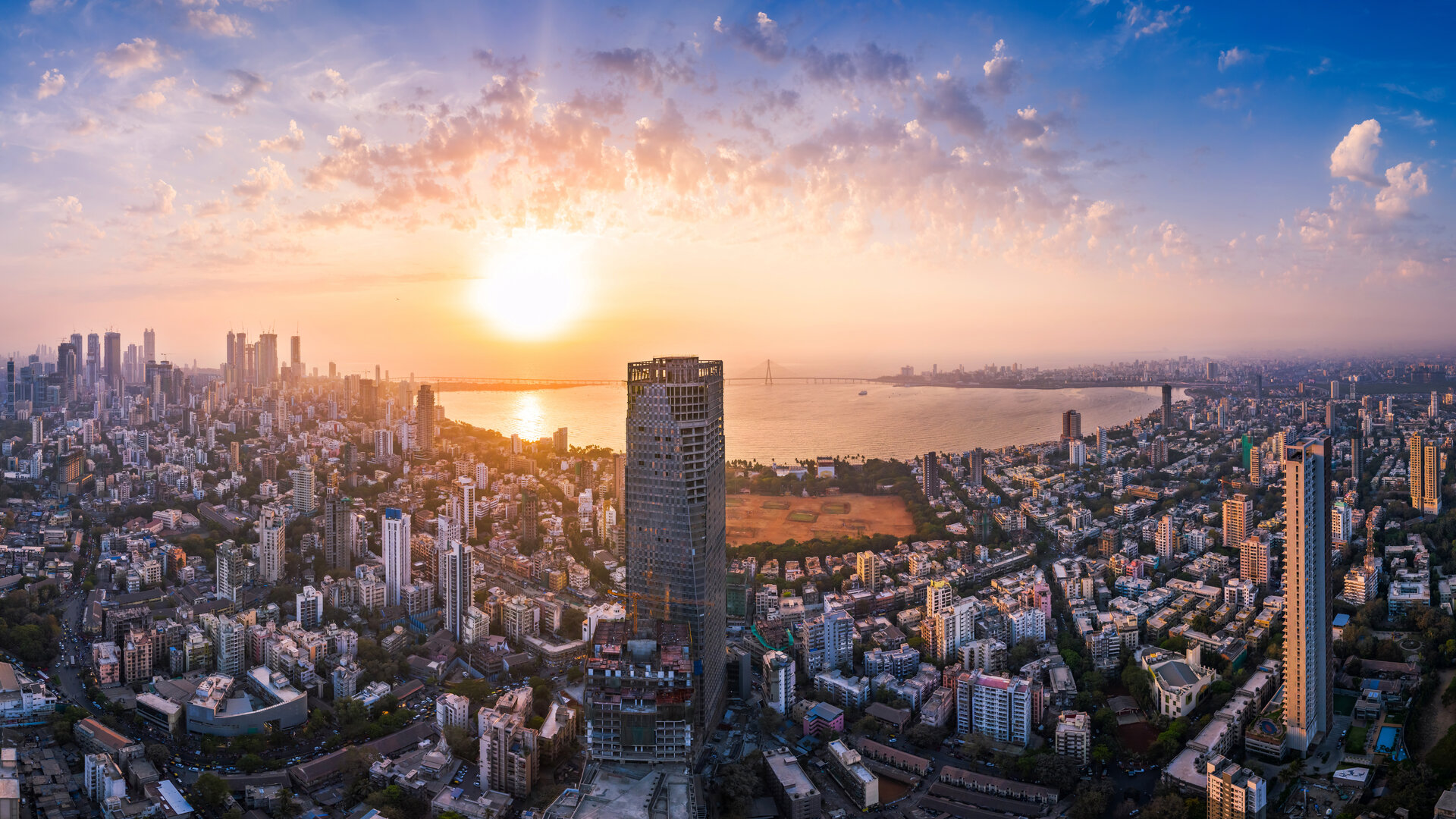The Financial Capital of India—Mumbai—is a famously expensive city. It is among the costliest metropolises in the country. The living cost here is higher compared to other major cities like Bangalore, Pune, and Delhi. Well, after all, it is one of the best places to live in India. If you are planning to move to this city, remember that the living cost will mainly depend on your location, lifestyle, and family size.
Read on to get a clear idea about the cost of living in Mumbai.
Cost Living in Mumbai For:
- Students and bachelors: The cost of living in Mumbai for a bachelor or a student depends on whether he or she decides to live alone or with a roommate. A 1 BHK in an affordable area can cost anything from ₹10,000 to ₹20,000 per month.
- Couples: Depending on the locality, the cost of accommodation for a couple can range between ₹30,000 and ₹50,000 a month for a 1 BHK in a posh area.
- Family with children: The rent of a 2 BHK ranges from ₹20,000 to ₹35,000 in inexpensive areas. The other household expenses will depend on the family’s lifestyle.
The average salary in Mumbai
Although Mumbai is the costliest city in India, the average income over here is relatively lower than other metropolises such as Delhi and Bangalore. As per Randstad Insights, the general Cost To Company (CTC) across different industries and locations in Mumbai is around ₹9.2 lakh per year.
Least and most expensive places to live in Mumbai
Before you find accommodation, determine whether you want to live in the most expensive area in Mumbai or a comparatively cost-effective location. Your monthly expenses will depend on your decision.
- Affordable places in Mumbai: Goregaon, Kurla, Sion, Saki Naka, Mulund, and Chembur
- Premium places in Mumbai: Bandra, Juhu, Cuffe Parade, Worli, Breach Candy, and Colaba
Renting vs. buying a house in Mumbai
If you are permanently moving to Mumbai, decide whether you wish to rent or buy a house in the city. Your living expenses in Mumbai would primarily depend on that. Here, we have done a comparison among the different types of properties in western suburbs to help you make an informed decision:
| Type | Average Rent | Average Property Price |
| 1 BHK | ₹30,000 | ₹1.5 crore |
| 2 BHK | ₹50,000 | ₹2.5 crore |
| 3 BHK | ₹80,000 | ₹4 crore |
Factors that determine the Cost of living in Mumbai
The average cost of living in Mumbai depends on factors, such as accommodation, lifestyle, travel needs, and much more. Check out the comprehensive list of expenses for more information.
1. Accommodation
As you know that the rent in Mumbai is significantly high, the location where you stay will have a huge impact on your monthly budget. Renting a 1 BHK in the most expensive places in Mumbai like Bandra, Juhu, and South Mumbai (lovingly called ‘SoBo’ by its residents), can cost anything between ₹30,000 and ₹50,000 a month. The rent of a 2 BHK in these locations can cost around ₹45,000 to ₹90,000 per month. However, if you decide to live in budget-friendly areas like Goregaon, Kurla, Sion, and Saki Naka, it is possible to rent a 1 BHK for ₹10,000 to ₹20,000 and a 2 BHK for ₹20,000 to ₹35,000 per month.
2. Food
Mumbai is famous for its street-food options, especially the ‘Vada Pav,’ but you cannot survive on such items every day. One of the unique things about the city is its ‘Dabbawalas’, who deliver meals all over Mumbai. You can avail of their services for ₹1,500 to ₹3,000 a month. Alternatively, you can prepare meals at home or hire a cook. A maid-cum-cook will charge you between ₹6,000 and ₹9,000 per month.
3. Groceries
From supermarkets to online groceries, Mumbai offers a plethora of options for meeting your daily needs, such as rice, bread, fruits, and vegetables. If you do not have an extravagant lifestyle, monthly groceries should not cost more than ₹4,000 to ₹5,000.
4. Utilities
Mumbai is a humid place, as it is located near the sea, and the city remains quite hot for the better part of the year. So, you might have to keep the AC on throughout the summer, resulting in a higher electricity bill. The monthly water and electricity bills can cost you around ₹3,000 to ₹4,000 for a 1 BHK, and up to ₹8,000 for a 2 BHK. A broadband connection costs ₹1,000 to ₹1,200 per month, which is similar to most Indian cities.
5. Transport
The local train network is the ‘Lifeline of Mumbai.’ Traveling by train is the most pocket-friendly option for your daily commute, and you can get a monthly pass for ₹1,200. The city also has a vast network of public buses and metros that are quite cost-effective. You also have the option to travel by cabs and auto-rickshaws. So, it should be sufficient to put aside ₹2,000 a month if you want to travel by a cab or rickshaw.
6. Shopping
If you are shopping from the most expensive places in Mumbai, which are its malls with premium retail stores like Zara, it will be quite heavy on your pocket. However, the city has many places like Colaba Causeway, Pali Hill, and Linking Road in Bandra, where you can find good-quality, trendy apparel and accessories at reasonable rates. You may set aside ₹2,000 per month for shopping at such locations.
7. Entertainment
Mumbai is the home of Bollywood, and its entertainment quotient is significantly linked to the film industry. There are many multiplexes, where you can catch a movie any day of the week. You can also take a tour of the Mumbai Film City in Goregaon. You may also spend your evening strolling around Marine Drive and enjoying street food at Chowpatty Beach for no more than ₹500. Planning for a weekend getaway? There are many scenic destinations around the city, such as Lonavala and Ajanta Ellora Caves, where you can have a great time.
8. Personal care
If you are a fitness enthusiast, Mumbai is the city for you. You can find at least one gym at every corner here. You may either join an inexpensive one for ₹1,000 a month or sign up for a luxury gym and exercise with celebrities for around ₹8,000 per month.
9. Childcare and schooling
The cost of living in Mumbai for a student or bachelor can still be manageable, but raising a child in the city can be costly. If you are looking for playschools, finding one for ₹500 per month in economical areas is possible. However, they can cost up to ₹16,000 a month in more affluent localities. CBSE school fees in the city range from ₹50,000 to ₹1 lakh a year, while renowned international schools charge a yearly average fee of up to ₹3.5 lakh.
Frequently Asked Questions (FAQs)
What is the cost of living in Mumbai?
The average cost of living in Mumbai with rent primarily depends on your lifestyle. If you lead a simple lifestyle, it is possible to stay for ₹25,000 to ₹35,000 a month.
How much money do you need to lead a comfortable life in Mumbai?
If you live in the heart of the city, it can cost over ₹50,000 every month to have a comfortable life. However, you can maintain the same lifestyle in the suburban localities at a lower cost.
Is Mumbai expensive?
Mumbai is one of Asia’s costliest cities. Renting or buying a house in the city can put a dent in your budget. However, regular expenses such as food and transportation in Mumbai are reasonable.
To conclude, Mumbai is certainly an expensive city, but it is still a place that makes you fall in love with it. Ask anyone living in Mumbai, and they will tell you personal stories that show why it is the ‘City of Dreams.’

out-of-the-world
banking experience





